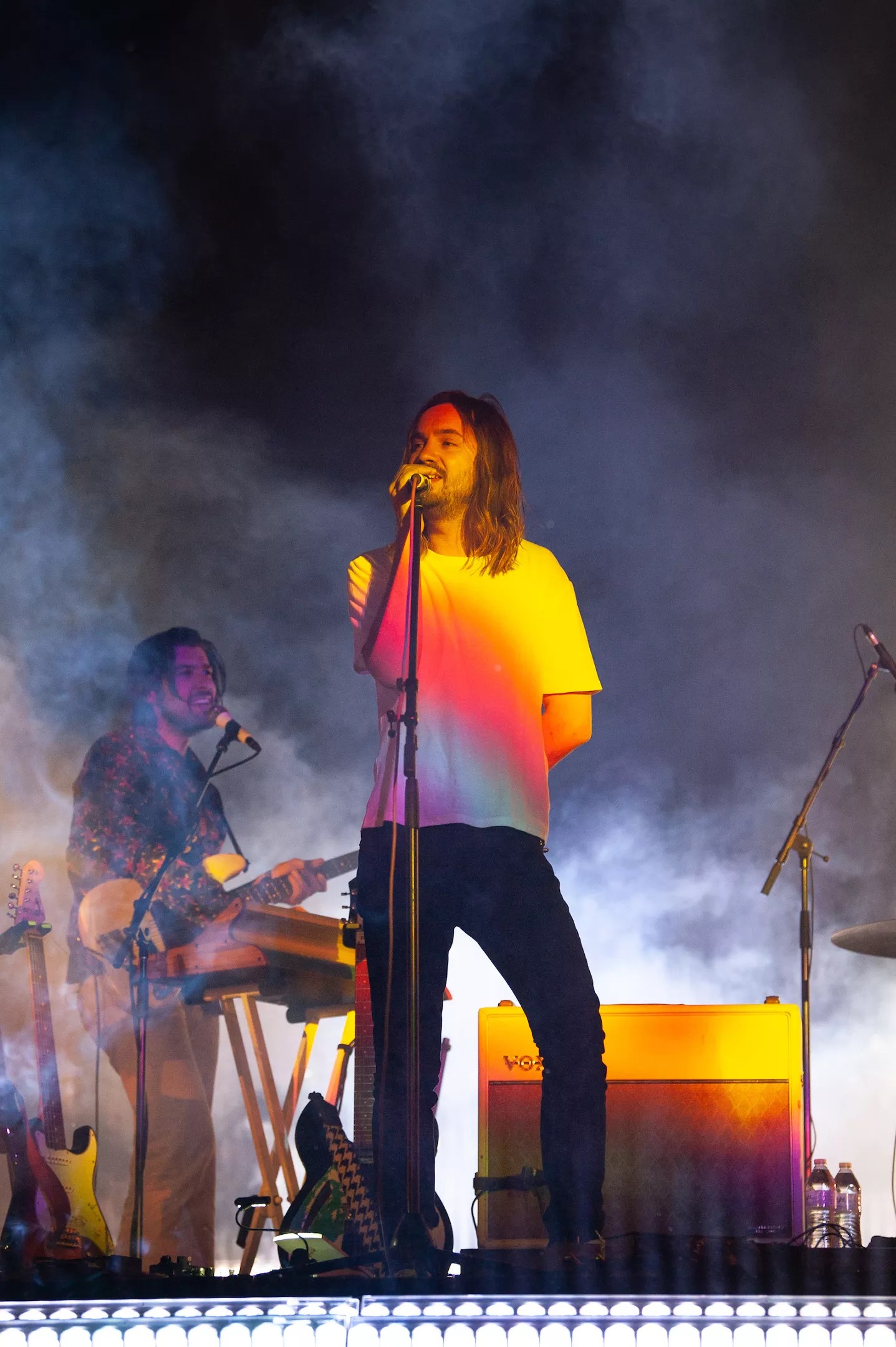
Courtesy of Coachella

Audio By Carbonatix

Even the allure of space monsters was not enough to draw this critic to Coachella 2019.
Courtesy of Coachella
By the time this is posted, I don’t know where I’ll be. I could be scaling some mountain in the Rockies, or sitting on a beach on the West Coast. I could be driving through Monument Valley. I could be camping in Capitol Reef, listening to the coyotes howl.
But there is one place I know I will not be, and that’s the Coachella Valley Music and Arts Festival. And that’s the way I like it.
To be clear, Phoenix New Times was granted access to Coachella, and I expect that by the time this column goes live – I’m writing it on Friday, April 12, the first day of the festival’s two-weekend run – we’ll have put in some admirable coverage of weekend one, which is when all the celebs come out to play. But I will not be a part of that. I am saying no to Coachella.
You may think I’m insane for turning down what is essentially a free ticket to the biggest music festival on earth. You wouldn’t be wrong. I have friends who say I’m nuts for not going, especially since I’ve never even been. But as it happens, there are plenty of good reasons not to go, besides not wanting to drive six hours out to the desert to get sweaty and dirty in a field with a massive crowd of rich L.A. kids in “boho” attire just so you can listen to your favorite artist get drowned out by a shitty Tame Impala set.

Do you really want to hear your favorite artist drowned out by a a shitty Tame Impala set?
Courtesy of Coachella
For one, there’s the homophobia.
To explain: Coachella is produced by promoter Goldenvoice, which is owned by entertainment conglomerate AEG. Its owner is Philip Anschutz, a man worth $12.9 billion whose money regularly goes to hateful political causes.
He has bankrolled organizations like the Family Research Council, a Southern Poverty Law Center-defined “extremist group” that “believes homosexual conduct is harmful to the persons who engage in it and to society at large,” according to its website. He’s also funded The Navigators, which, according to Pitchfork, believes LGBTQ status to be indicative of “sexual brokenness” and comparable to incest. Follow the money from a Coachella ticket purchase, and it eventually leads to one of these insane cabals of homophobic Christians, funneled through Anschutz.
Speaking of tickets, everyone knows how expensive they are. A general admission pass is $429, and if you want to see the celebs during weekend one, which always sells out within minutes, you’ll have to buy a pass secondhand at an absurd markup. This doesn’t include accommodations. Coachella is a camping festival, and while the rich and famous may be able to land an Airbnb in Palm Springs or a spot in an “Influencer House,” the rest of us have to pay at least $125 for a camping pass (oh, those are sold out too, by the way).
And of course, there’s the infamous water issue: While bottles have always cost only $2, contrary to rumor, Insider found that refill stations are often placed far from performance areas, forcing thirsty attendees to choose between taking a long walk and buying another bottle, or a $9 lemonade, or a $10 ice cream taco.
Finally, there’s the “Radius Clause.” When an artist agrees to play the festival, a clause in their contract states that, from December 15 to May 1, a period of six months, they cannot play any other festival in North America or publicize tour stops in four states, including Arizona, until after Coachella releases its lineup.
This clause is Coachella’s way of maintaining its place of supremacy as the most prominent event on the American, and thus the global, music industry calendar. It’s a blatantly elitist, monopolistic practice that keeps artists under its thumb and turns the event into a circus of vapid exclusivity, where getting into private parties with celebrities is more important for certain people than the music itself. At least one lawsuit has been filed against the festival regarding the clause, although it was unsuccessful.
Granted, the clause isn’t really that hard to get around. Aphex Twin, for instance, just played two shows in North America, in New York and Mexico City, ahead of his Coachella set. But Coachella still exerts enough influence that they can get artists to skip out on other festivals. I have seen this in action at least once. About a year ago, the promoter of a festival in Florida told me of the two major acts they had planned as headliners for their 2019 edition. When the festival announced their lineup, those two acts were nowhere to be seen, but they appeared prominently on Coachella’s poster a few months later. They had been sucked into Coachella’s vortex.
To all of this, I say no. I will not be sucked into the vortex. I am in the rare position where I have seen enough live music and attended enough festivals that going to Coachella is a choice, and not some sort of bucket-list rite to fulfill. And my choice is to opt out, to say no to the hatred, extreme wealth, and corporate greed that fuels this awful, unpleasant event. Go if you must, go if you already bought a ticket, and go if you’ve never been, but if you feel you can refuse, do it.
And anyway, I don’t even know anyone there, and where’s the fun in a festival without your friends?